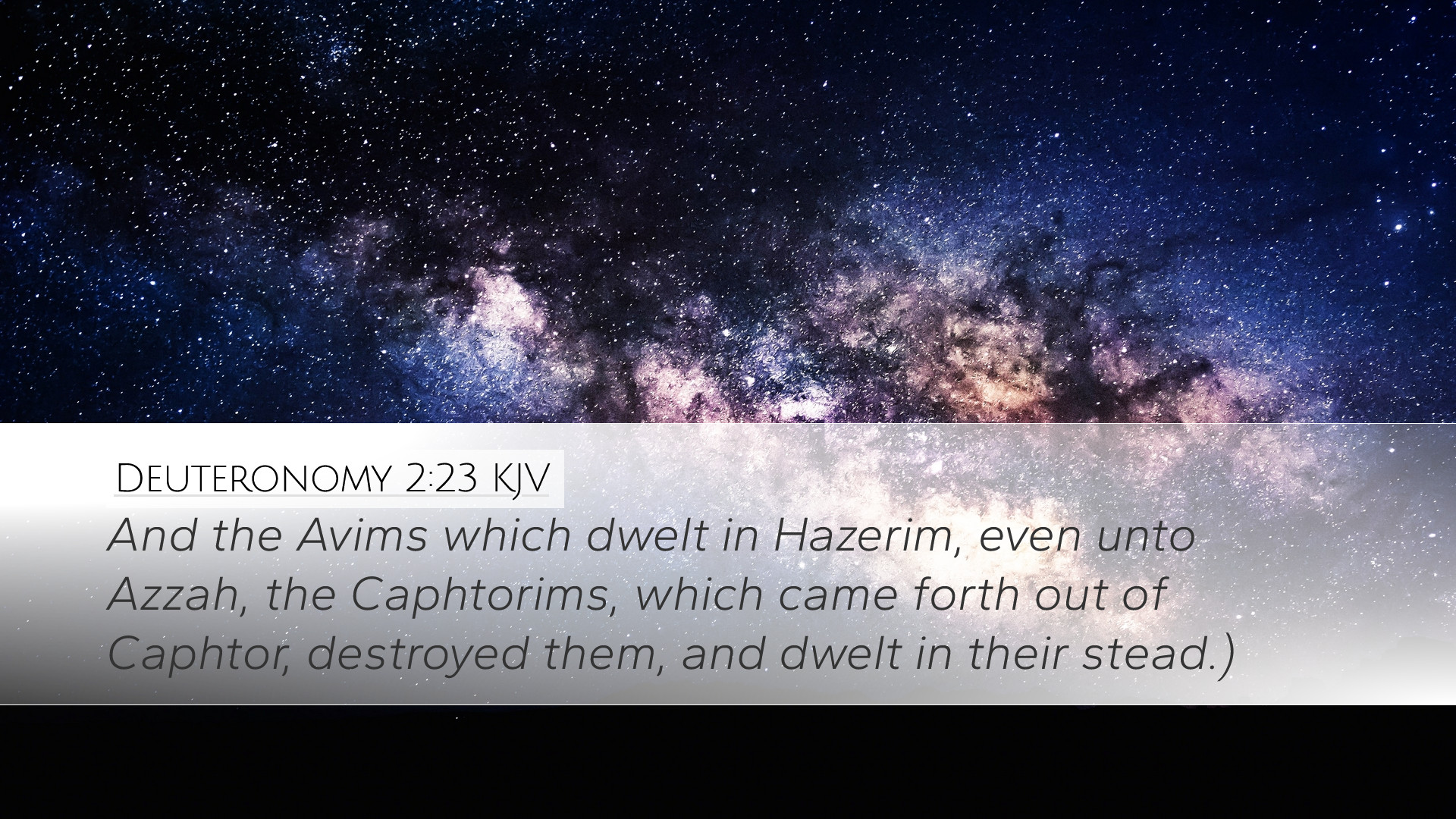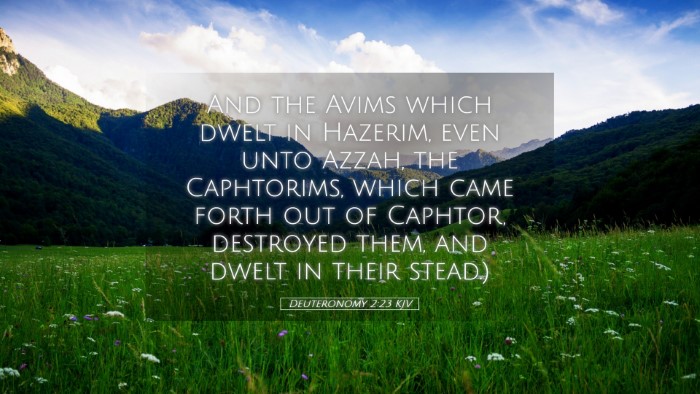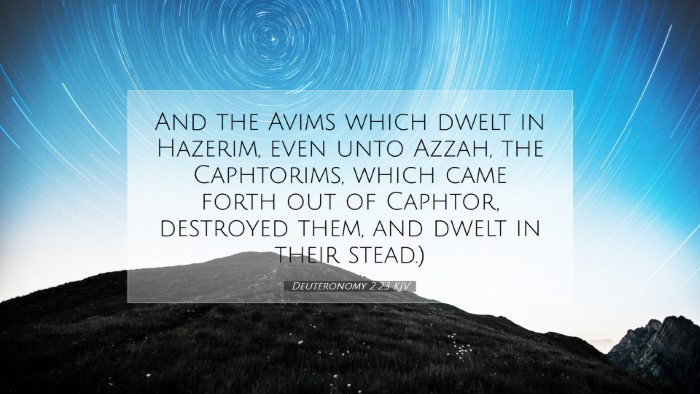Commentary on Deuteronomy 2:23
Verse Context: Deuteronomy 2:23 states, "And the Avims which dwelt in Hazerim, even unto Azzah, the Caphtorim, which came forth out of Caphtor, destroyed them, and dwelt in their stead." This verse refers to the settlement of the Avims and their displacement by the Caphtorim, indicating the movements and conquests of peoples in the ancient Near East.
Historical Overview
This verse occurs within a broader narrative wherein Moses recounts the Israelites' journey through the wilderness, emphasizing their encounters with various nations.
- Historical Significance: The passage reflects the transitional nature of territorial claims in ancient times, illustrating the dynamic migrations and conquests that characterized the region.
- The Avims and Caphtorim: Understanding who these groups were, as well as their origins, provides insight into the geographical and ethnological tapestry of the ancient world.
Commentary Insights
Matthew Henry’s Commentary
Henry emphasizes the providence of God in the affairs of nations. He notes that the eradication of the Avims by the Caphtorim serves as an illustration of God’s sovereignty over the course of history. He draws a parallel between this event and the eventual conquest of Canaan by Israel, underscoring that the Lord orchestrates the movements of peoples to fulfill His divine purposes.
"The Lord governs the world; He raises one nation and brings down another, as it pleases Him."
Albert Barnes’ Notes
Barnes elucidates the identity of the Avims and Caphtorim, suggesting that the Caphtorim are associated with the island of Crete, while the Avims are often linked to earlier, lesser-known populations of the region. Barnes highlights the fluidity of population movements, which he believes reflects a greater theme of God’s determined purpose for Israel’s inheritance of the promised land. He also comments on the implications of these conquests for the Israelites as they prepare to enter Canaan.
- Divine Selection: Barnes argues that these historical events are not random but divinely ordained, aimed at providing Israel with the land God promised them.
- Spiritual Application: He encourages readers to see the overarching narrative of God’s providential care and the fulfillment of His promises.
Adam Clarke’s Commentary
Clarke takes a more detailed etymological approach, exploring the meanings of the names involved in the text. He posits that the mention of geographical locations serves to validate the Israelites’ claim to the land by recounting previous inhabitants and their eventual downfall.
"Every nation experiences rise and fall; what is critical is our understanding of God’s hand in these events."
Theological Reflections
The theological implications of this passage challenge us to understand history through the lens of divine sovereignty. The rise and fall of nations throughout scripture, reflective of God's ultimate plan, invites believers to recognize His involvement in contemporary affairs and to place their trust in His ongoing work.
Provision for God’s People
This verse reassures the Israelites that they are not merely wandering aimlessly but are participants in a grand narrative authored by God. The dislocation of the Avims is not just a historical footnote but is an affirmation of God clearing the way for His chosen people.
Conclusion
In understanding Deuteronomy 2:23, we glean insights into the intersections of history, theology, and the endurance of God’s promises. As pastors, students, and scholars engage with this rich verse, they are invited to reflect on God’s work in history and His provision for His people. This passage serves as a compelling reminder that God is active in human affairs, wielding history itself to bring about His divine intentions.


